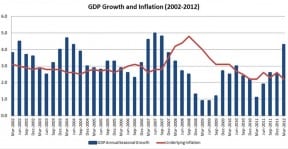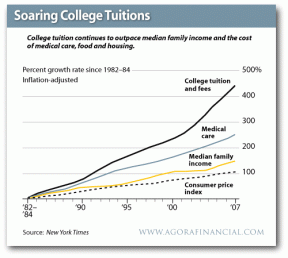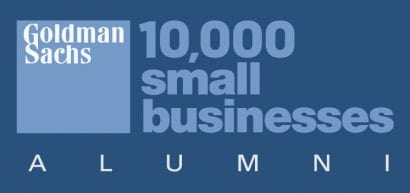
Technology and the internet are changing everything – we all know this – and we experience it in our lives every day. It’s nothing to be in constant communication through our mobile devices 24/7 now. It’s taken for granted that crowd-sourced tools like Wikipedia, TripAdvisor, Twitter, etc. can bring clarity to chaotic information streams (or not – still a lot of work to be done here). So why is it that we go to college like 19th century scholars at Oxford – bearing our books into rooms with chalkboards? And why is it taken for granted that we should mortgage our futures to pay for this?
I believe in education – I had an excellent one with a succession of carefully chosen private schools and 4 years at Cornell. My parents had the means to make that possible and I thank them for it – but since becoming a parent to two boys, now young teenagers, I’ve been aware of the powerful marketing forces working on me, and them, to convince us that we must, without fail, save every possible dollar to pay for the astronomical tuitions of the future. You can’t turn on the television or browse the web without having Merril Lynch or T.RowePrice remind you that college will cost upwards of $500,000 for your newborn so you better start saving. Inflation in the USA has been moderate to negligible in the past decade -around 3% per year –
 but in the meantime college costs (tuition, fees, etc) have increased 6%-9% annually in the same period with an aggregate national average growth of just over 30% for the past decade.
but in the meantime college costs (tuition, fees, etc) have increased 6%-9% annually in the same period with an aggregate national average growth of just over 30% for the past decade.
Every parent knows this – and yet the universal response is to toe the line and concede that a 4-year degree is “worth it” and we will “figure it out” when the time comes. Well, lets imagine different. There’s an exploding new movement in higher education pairing online classes, crowd sourcing and real-time feedback going on: massive open online courses, or MOOCs. MOOCs have been written about extensively but I haven’t gotten the sense that we are seeing the forest for the trees here. A recent article in the New York Times gives a good picture of the revolutionary nature of this new idea.

What’s going on here is education embracing technology for communication and feedback like never before – and people love it. What’s unsaid in all this is some pretty powerful stuff – namely, the internet is about to kill college. Think about it – the internet has transformed whole industries completely – we all participated in the transformation of music, the complete revolution in publishing, the accelerating demise of the post office, the transformation of private capital investment that is being currently foretold by Kickstarter and others… But College? The sacrosanct temple of learning? The grassy Quadrangle the hearkens back to Socrates holding forth in the public forum? Could these places, their bricks and mortar, their entire institutional construct, truly be threatened by a bunch of people using google hangout to share ideas?
Yes. I think the internet will kill College as we know it – it may take a long time and it portends to be an ugly, protracted fight. The institutions are embracing new ideas like MOOCs today because they want to explore this space – they are mission-driven to do so. But these institutions are also businesses – massive businesses with trillions of dollars of hard assets – real estate, intellectual property, cash, and the best human-capital on the planet. The facts don’t lie though – the charts above are clear indications that something in the system is fundamentally broken – if the cost of higher education is out of reach for 99% of the people then it is fundamentally irrelevant and requires replacement or revolution. In 2008 teh New York Times wrote about this with the headline “Higher education may become unaffordable for most in the U.S.” – Well, here we are in 2012 and it is. So now the revolution starts.
Lets look at the pattern of events that will unfold.
1) The recession that started in 2007 struck many colleges where it matters most – in their investment funds. Headlines around the nation called this out at the time and the repercussions on the institutions were significant and deep – suspended capital projects, hiring freezes – all the usual effects that industry feels in an economic downturn. The recession illuminated the degree to which these institutions have become focused on amassing massive hoards of cash – endowment funds are safety nets that hopefully never get deployed – but they have become an industry all by themselves. So what happens when an institution is faced with the fact that they have to subsidize tuition for every student on an increasing percentage scale year over year as tuition become impossibly high? This is already happening throughout most of the USA where tuition fails to cover the costs of the product – and endowments are being tapped to pay that subsidy. Its a broken system that is highly volatile and tied to the risk/reward matrix of the international stock market – and we know how stable and predictable that has been for the last decade or more.
2) Technology accelerates. Moore’s law still applies and its echoes are felt everyday as we experience the arrival of the future on an exponential curve. I’m referring to the unpredictable and transformational change that is occurring for all of us in our communications, our ability to interact with the data-sets that are our world, and the speed by which we connect and share ideas. This is not slowing down – its speeding up and nobody really knows what the world will look like in ten years as a consequence. I hope that it looks beautiful – more connected, intelligent, educated, aware (if you’ll forgive the geeky reference – more Star Trek than Blade Runner….).
3) Traditional models for jobs and career are transforming. Its accepted now that you may have multiple overlapping careers in your life – not just one. Our current crop of business heroes tend to be college dropouts who found the rigid 19th century model unworkable for their nimble, technology-focused minds. They went to work building facebook, microsoft, apple, twitter, and just about everything else while the rest of us were writing papers about Chaucer (that would be me….). I grew up a geek but I put it aside for the sake of my piece of parchment, and having a good GPA and I wish today that my parents had just set up a small venture capital fund with the money they spent on tuition. The rigid rules are breaking down for what it means to live and learn and work.
4) We no longer need to physically convene to share ideas. The college campus is a beautiful thing – but it will increasingly play second fiddle to people who are connected globally and seamlessly. Bricks and Mortar will become increasingly less relevant.
5) Traditional models are ripe for exploitation by disruptive ones. I think that the higher education system and the healthcare industry are the two remaining systems in our world that have not been forced into full revolution yet. Healthcare is there – in the midst of some really rough waters without a clear direction. Higher education still sits in ivory-tower glory on the hill but its turn is coming next and I think we are going to see a massive and traumatic change here in the coming decade or two as the old system resists the new and deploys its resources aggressively to fight it. Perhaps not – perhaps it is in the DNA of education to respond to the over-arching mission at its core which is to enlighten, educate and elevate the people – but I see a large, embedded and static industry with lots to lose. This is Detroit in 1970 making fun of Toyota’s first imports….and we all know how that worked out.
So what can we learn here? What is the opportunity we have as individuals, as institutions, and as a nation? Here’s what I think:
1) As individuals we need to create a new system for tracking, assessing, and reporting educational progress. Jobs in the future will be about what you know and can do, and the technical and creative skills you bring to the table. We need to find accredidation and tracking for these online courses like MOOCs immediately – not in 5 years time. There needs to be a unified view of achievement and progress that is socially-networked and aware – something of a collision between the resume function of linkedin, the timeline aspect of facebook, and the reputation management of a Kred or Klout – but stripped down to be a vivid, professional representation of your individual education, skills, portfolio and ideas.
2) As institutions we need to rapidly embrace the future and shed the past – campuses need to be completely re-thought as places of convening and conversation – students need to be liberated from the schedule, the classroom, and space and time constraints. Administration needs to find ways to fairly compensate and oversee educators and stimulate on-going education and a more competitive model for career evolution than tenure. In many ways the post-graduate research-model of higher education is a much better and more evolved one than the undergraduate experience – lets break down the barriers and allow people to move into place as their ideas accelerate. Ditch the 4 year schedule of requirements. Today.
3) As a nation we need to build bridges for all people to participate in education regardless of age or economic status. Learning should be a cultural norm – we need to talk about learning as something everyone takes part in. Curiosity and creativity is not just for children or young adults. Today, if you have a question you are often only moments away from starting to find the answers online, and engaging in a community of ideas and opinions. the TED conference has shown vividly how much hunger there is in the world for transformative ideas and kudos to TED for opening up their archives, the conference and every idea to the public for free.
In conclusion – the 4-year undergraduate system is broken – we can’t afford it and it has ceased to be relevant to how we are and will learn in the future. It needs to change radically and it can either fight change tooth and nail or embrace it.
This is kind of a long post – apologies – but it’s been on my mind and I hadn’t really seen it out there. What are your thoughts on this? I can’t wait to see it happen.


This is just what I would have wished to write myself, if I were as knowledgeable! You will be proven right without a doubt. As homeschoolers, we already experience this – online work is possible, and classes may meet just once a week. We still need to meet in physical spaces, since we are physical as well as spiritual beings, but this takes many different flexible forms – a friend’s living room, trip to the Symphony, dinners together, informal classes, study groups, even parties. You have painted the future … I look forward to passing this on!
Yes, most definitely, and well said. (Didn’t know you are a fellow Cornellian.)
New York Times is on the trend. http://www.nytimes.com/2012/12/02/fashion/saying-no-to-college.html?src=rechp
Another quarter heard from, comprehensively: http://www.technologyreview.com/featuredstory/429376/the-crisis-in-higher-education/
The debate continues – check out this article about the bloated bureaucracies that are inflating college tuition without adding any teaching value: http://online.wsj.com/article/SB10001424127887323316804578161490716042814.html?mod=WSJ_hpp_MIDDLENexttoWhatsNewsThird
here’s an interesting additional article about how to use traditional campus to advantage: http://www.linkedin.com/today/post/article/20130211111255-17000124-lowering-the-price-of-the-valuable-campus-experience?ref=email
Georgia Tech is offering a $7k Masters in Computer Science via MOOC in 2014 potentially: http://www.gizmag.com/georgia-tech–graduate-computer-science-degree-mooc/28763/?utm_source=Gizmag+Subscribers&utm_campaign=a3be51ec56-UA-2235360-4&utm_medium=email&utm_term=0_65b67362bd-a3be51ec56-89808386